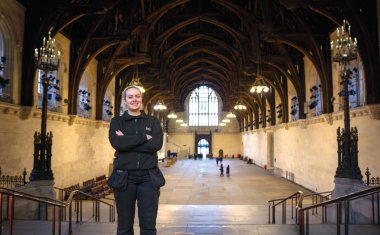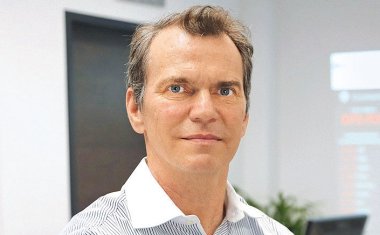Locking System Supports Event Logistics
Right from its opening Elbphilharmonie, the new Hamburg landmark, has exceeded all expectations on public perception, visitor frequency and room utilisation alike. For the operator...
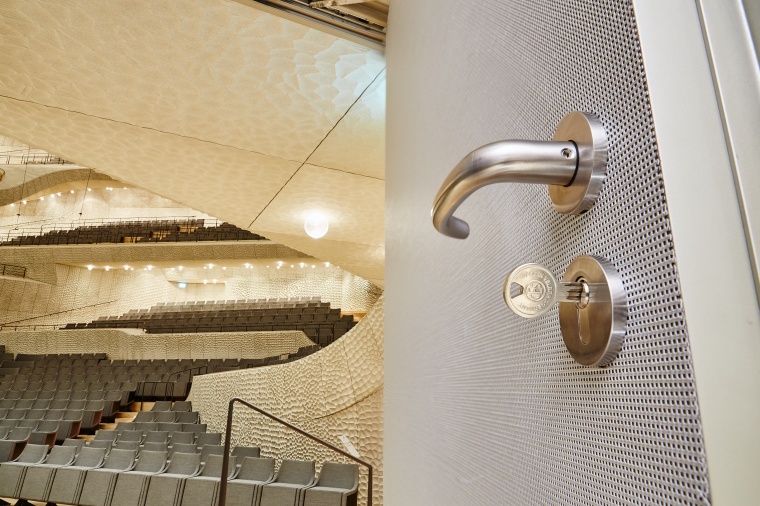
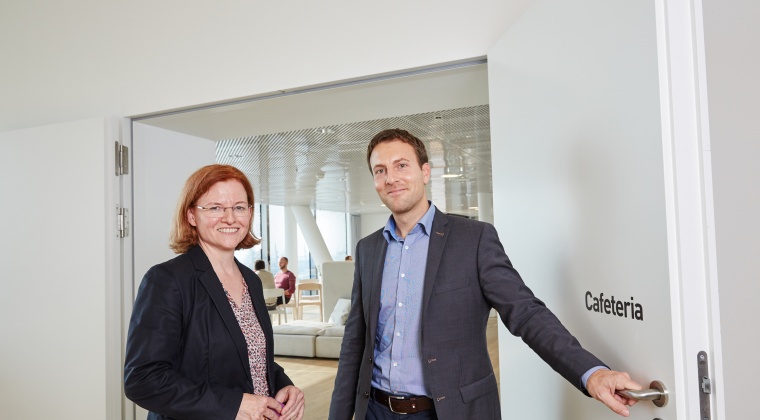
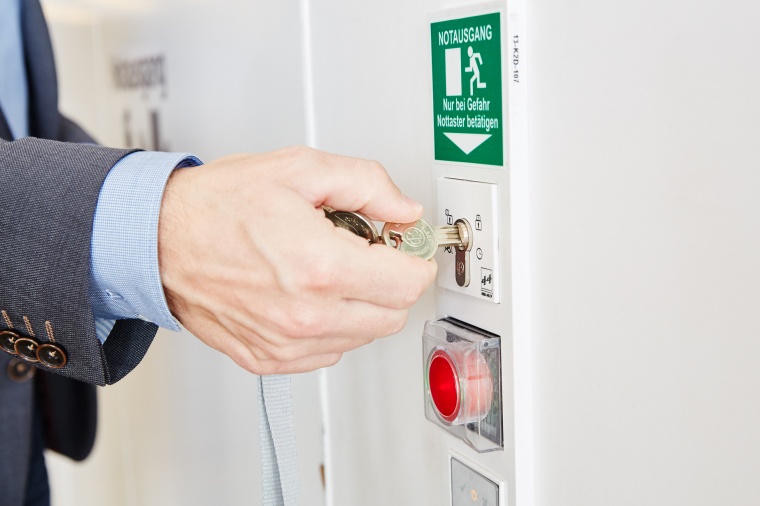
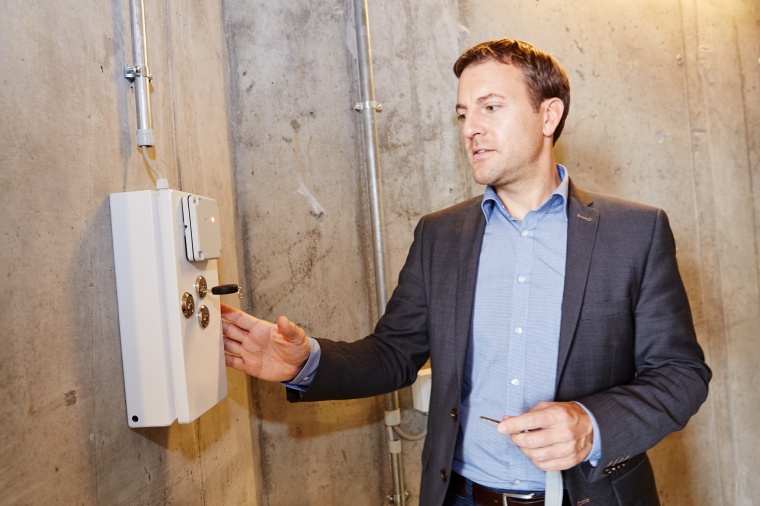
Right from its opening Elbphilharmonie, the new Hamburg landmark, has exceeded all expectations on public perception, visitor frequency and room utilisation alike. For the operators of the Elbphilharmonie, it was therefore a great relief to see that the access control solution conceived on the drawing board turned out to work in actual practice right from the start. For this, the locking system experts from CES can claim the credit.
The figures speak for themselves: Every day, up to 16,000 people visit the observation deck of the Elbphilharmonie, the Plaza, which at a height of 37 m separates the distinctive brick base from the light glassy superstructure and allows a 360° view of the port and the city on the river Elbe. Also on a record-breaking scale are the more than 2,500 culture enthusiasts who fill the concert halls every evening. With its architecture, its fit-out, its acoustics and last but not least its location, the Elbphilharmonie is a Gesamtkunstwerk, a synthesis of the arts, that captivates everyone.
Yet, the constantly high volume of visitors and the tight event schedule also pose particular challenges for the logistics and the security management. ‘The first months after the opening were a running-in period for our operations. Every event – be it the G20 concert, a pop concert or the award of the Echo Klassik for classical music – is also a first for us as regards the engineering and the logistics’, explains Dennis Just, already since 2013 technical manager of the Elbphilharmonie and the Laeiszhalle concert hall. The trained technician lighting and stage manager is even more delighted that the complex locking concept with a multitude of groups and overlaps has been realised virtually one to one.
Map the Reality with Pinpoint Accuracy
Dennis Just still remembers well the many locking plan meetings during which the demands on the locking hierarchy were defined – resulting in an extensive list of requirements that was simply too big for any software to manage. But not for the system analysts from CES, who translated the specifications into a detailed locking plan matrix for the overall building complex, which not only accommodates concert halls but also a multi-storey car park, an administration and building services wing, a plaza open to everyone and a hotel and catering section.
cThe locking system for the Elbphilharmonie
The mechanical locking system of the Elbphilharmonie comprises more than 2,500 door cylinders. These were designed and manufactured for the DU key section series which offers a high level of protection against unauthorised duplication thanks to a double undercut. This locking system protects the heart of the Elbphilharmonie, the concert area, but the CES locking cylinders are also fitted in the restaurant, the luxury hotel, the car park and on the publicly accessible plaza. Thanks to its extremely wide variety, the DU key section is especially suitable for a nearly one-to-one implementation of the requirements of a complex locking system such as this one. As a standard, the locking cylinders are made of brass. In order to obtain the specified stainless steel look, the metal was satin nickel plated and brushed.
In view of this complexity, the challenge was to create meaningful functional units, for instance for the security, facility management and cleaning staff or the artists, each with their own access rights. The concert part alone comprises more than 500 rooms, plus goods lifts, inspection openings, security gates and passages to other building wings. The required allocation of a huge number of keys and cylinders to the various functional units and areas of use was developed more or less on the drawing board but worked out just fine in actual practice. That was ‘right on target’, as Dennis Just is pleased to note, a view that is shared by Tino Konnertz, Managing Director of Konntec Sicherheitssysteme GmbH, Mönchengladbach, the trade contractor responsible for the implementation of the locking system on site. Konnertz adds: ‘What is more, with the CES DU key section series, one of the highest quality key systems currently available in the marketplace was selected. Although the locking system is very complex, the master keys and group keys are extremely robust and hence perfectly suited for very frequent use.’
Permanently Open State possible with Mechanical Key
The CES locking system had also passed its field test in the interaction with the electronic access control and emergency exit control systems. Facility technicians can also use their respective area key to operate the key switches integrated in the emergency exit terminals and thus control connecting doors and goods lifts as required. Normally, access is cleared via a transponder card – but with this, access is enabled only for a short time. Should the live doors remain open for a longer period, e.g. for the transport of a larger object, this will immediately trigger an alarm in the alarm management system of the control centre. But in the concert hall operation, complex transport operations are part of the daily routine.
Dennis Just: ‘Most of the guest orchestras bring their own musical instruments, so every evening, hundreds of instruments must be moved to the concert hall and back. For that, speed and efficiency are a must’. To meet these requirements, the doors and lifts can be switched to permanently open state with a mechanical CES key and cylinder. This combination of electronic access control and mechanical key operation also offers added security and safety in the management of visitor flows through the escape stairways from the car park towards the concert hall and in the opposite direction. So if the electronics should fail, the seventeen facility technicians around Dennis Just always have a fall-back.
Fall-back for smooth concert operation
Imagine: The concert hall is full to the last seat, everybody is waiting in anticipation for the first cadences of the orchestra but the control room is not accessible because of an electronics failure. In order to ensure a reliable operation also in situations such as these, the safety and security regime provides for another basic fall-back, especially for the concert hall areas. All over the concert hall section, from the Kaispeicher with the “World of Instruments” in the basement up to the 20th floor, key safes are provided in a decentralised arrangement. The idea: With a lower-order key, a higher-order key can be removed in an electronically controlled way so that if need be, access to central building areas can be made possible. Dennis Just explains how it works: ‘At the key safe, an electronic reader is installed. The user identifies her- or himself at the reader by means of a combination key. If authentication is successful, this will “enable” the area key deposited in the key safe which can then be removed using the mechanical key. The lower-order key remains in the safe as a kind of deposit or pledge’.
These key safes, which are unique in this form, as well as the software and a tailored toothed gear mechanism were especially developed and realised by the electronics experts of CES. Just like the emergency exit control units, the key safes are linked with the central alarm management system which is permanently manned and documents every removal and return of the area keys. In case of an attempted manipulation, the system promptly triggers an alarm and sends a sabotage message. For Dennis Just this is an ‘all-round safe solution’. Thanks to this redundant access control approach, the technical manager can focus on his other tasks and ensure that the concertgoers fully get their money’s worth.
Business Partner
CES C.Ed. Schulte GmbH ZylinderschlossfabrikFriedrichstr. 243
42551 Velbert
Germany
most read


Assa Abloy's battery-powered Aperio KL100 secures lockers
Boost workplace security and operational flexibility by securing more than just doors.

Airbus Defence and Space: Security as a strategic pillar of Europe's defense capability
Airbus Defence and Space protects sites, technologies and employees with modern security and cyber solutions - strengthening Europe's resilience in uncertain times

Safety and Security in an Emergency: How companies take responsibility with strategic personal protection and amok prevention
Personal protection & amok prevention: strategic concepts, training & responsibility for corporate safety and security

When the Internet stumbles: Why DNS is important
When DNS fails, the internet stumbles-AWS outage proves resilience and redundancy are vital for digital trust

